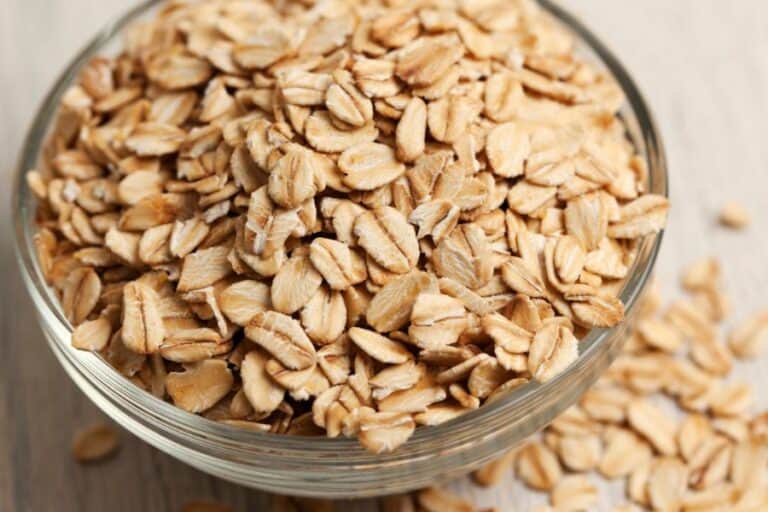How much milk should you drink a day?

Milk is the second most consumed beverage among American teens. But how much milk should you drink a day? Here is a guide that answers your questions.
Although milk is the second most consumed beverage among American teens, with high school students drinking at least one serving daily, milk consumption in the states is declining every year. According to a report by statista [1]Statista: Per capita consumption of fluid milk products in the United States from 2000 to 2020 (in pounds)*, traditional milk consumption in the US fell by nearly 19% between 2009 to 2018.
A lot of the decline in dairy intake over the years has been due to the association of milk and dairy products with an increased risk of gastrointestinal problems, cardiovascular disease, and bone health problems. But one should not forget the benefits of milk consumption. It is one of the major sources of protein for vegetarians, plus an excellent source of calcium and fortified vitamin D.
But what happens if you drink too much milk? How much milk should you drink a day? Here is a guide that answers all your questions.
How much milk should you drink a day?
Generally, we all know that milk benefits our health, but do you know how much milk you should drink a day? Although milk is an excellent source of calcium and vitamins, too much milk may not be suitable for your body. So, how much milk is too much in a day? Most of us are unclear about the answer. Thus, here are dietary guidelines that you might need to know.
The American dietary guidelines suggest adults drink three cups, or 732 mL/d, of milk daily. For children, the national dietary guidelines recommend an intake of 2–3 cups or 16–24 ounces of whole milk per day for toddlers and 2–2.5 cups or 16–20 ounces of low-fat milk per day for kids between ages 2 and 5.
How much milk do we really need?
There aren’t many whole foods that can provide the same nutrients as one gets from a single cup of milk. Due to these nutritional benefits, the United States Department of Health and Human Services recommends three servings of dairy products daily for everyone aged 9 and above. However, drinking too much milk is associated with a few side effects, like acne and digestive problems like bloating. Also, scientific studies say calcium from milk and other dairy foods reduces iron absorption in the blood.
How much milk should you drink based on your age?
So, how much milk should you drink a day according to your age? Below are the daily recommendations for children from 12 months up to 18 years of age based on the national dietary guidelines on milk consumption.
| Age | Daily recommendation |
| 12-23 months | 1 ½ – 2 cups |
| 2-3 years | 2-2 ½ cups |
| 4-8 years | 2 ½ cups |
| 9-13 years | 3 cups |
| 14-18 years | 3 cups |
Source: houstonfoodbank.org [2]houston food bank: NUTRITION ED: How Much Milk Should My Child Drink? What Kind of Milk?
What are the nutritional benefits of milk?
Wondering how much calcium is in a glass of milk? And what other benefits does drinking milk offer? Well, milk contains a wide range of nutrients a human body needs to function optimally. The nutritional composition of milk is as follows:
One cup [3]U.S. Department of Agriculture: FoodData Central Search Results of whole cow’s milk provides:
| Nutrient | Quantity |
| Water | 88 g |
| Calcium | 123 mg |
| Vitamin D | 38.4 IU |
| Fat | 8 grams |
| Protein | 8.14 grams |
| Potassium | 150 mg |
| Phosphorus | 101 mg |
| Carbs | 12 grams |
| Calories | 152 |
| Riboflavin (B2) | 0.138 mg |
| Vitamin B12 | 0.54 mg |
Protein
Milk is a rich source of protein, both soluble (whey protein) and insoluble (casein), with each ounce (30 ml) providing a good 8.14 grams of complete proteins. Both of these milk proteins are rich in essential amino acids and help build stronger bones and muscles. While casein boosts calcium absorption and promotes lower blood pressure, whey helps grow and maintain muscles.
Fat
Milk is a food product often marketed based on the amount of fat it contains. One reason is that it is a rich source of dietary fats and has nearly 400 different fatty acids, and they are mostly healthy if consumed in moderation. Among all the varieties of milk, whole milk has about 70% of saturated fatty acids, 25% of monounsaturated fatty acids, and 2.3% of polyunsaturated fats.
Carbs
Milk contains carbs in the form of lactose, which is a natural sugar. After dairy intake, the lactose breaks down into glucose in the digestive system before being absorbed into the bloodstream. An 8-ounce serving of milk provides 12 grams of carbohydrates.
Vitamins and minerals
Milk also provides other micronutrients like essential vitamins and minerals. It is rich in vitamin B12 and vitamin B2 (riboflavin), fortified with vitamin D, and is rich in essential minerals like calcium, phosphorus, and potassium.
Signs that you are drinking too much milk
From offering calcium for strong bones to providing protein required for muscle growth, the benefits of milk are undisputed. However, drinking too much milk has certain side effects. Also, if you consume too much dairy, it can impact your health negatively. Listed below are some potential side effects of going overboard with your milk consumption.
1. Risk of cardiovascular disease
Milk surely has milk proteins and healthy fats that reduce high blood pressure and prevent the risk of cardiovascular disease. Unfortunately, drinking milk beyond the daily recommended amount doubles the risk of heart disease. Full-fat dairy contains saturated fat that can increase LDL (bad cholesterol) levels and lead to heart disease. So, if you are already at risk of developing cardiovascular disease, it is best to limit your intake of high-fat dairy products.
2. Acne
These days, milk often contains added hormones linked to skin problems like acne. When an individual drinks cow milk and digests its whey and casein proteins, they release a hormone similar to insulin that triggers breakouts. If you have been struggling with acne resulting from increased milk consumption, try organic milk, as it doesn’t contain added hormones.
3. Bloating and digestive issues
Drinking too much milk or consuming excessive dairy products leads to a compromised digestive system, with symptoms like bloating, diarrhea, and cramps. This could be a sign of a weaker gut or lactose intolerance. If you are lactose intolerant, you are likely to experience digestive issues when you drink milk. This is because your body lacks the enzyme that breaks lactose into glucose or simple sugars.
4. Brittle bones
If you are wondering, “Does milk make your bones stronger?” The answer can be perplexing. Although milk is rich in calcium and often fortified with vitamin D making it good for bone health, too much of it can be counterproductive. A Swedish study [4]National Library of Medicine: Milk intake and risk of mortality and fractures in women and men: cohort studies has shown that consuming three or more glasses of milk a day decreases bone density and increases the risk of fracture.
5. Brain fog
For some people, the consumption of milk can have a negative impact on their nervous system. The subsequent reactions can trigger confusion, headaches, or brain fog. Some symptoms of brain fog may include bouts of memory loss, loss of concentration, or inability to focus.
6. Nausea
According to the National Institutes of Health (NIH), 65% of adults struggle with lactose intolerance. However, consuming too much milk can cause nausea, even if you’re not lactose intolerant. Drinking milk in large quantities can cause vomiting, stomach pains, and even diarrhea.
7. Lethargy
If your digestive system isn’t capable of digesting milk, it can lead to a leaky gut. The reason behind this is the presence of A1 casein in the milk, which can cause inflammation of the intestines. Leaky gut syndrome eventually makes you feel lethargic or sluggish.
Alternate choices if you are lactose intolerant
Lactose intolerance is when your body cannot convert lactose into glucose and galactose. The condition is most prominent in various parts of South America, Africa, and Asia, affecting 65–95% of the population. Lactose intolerance causes symptoms like nausea, diarrhea, abdominal cramps, and bloating.
If you are lactose intolerant, you must rely on safe and healthy alternatives to dairy for your daily calcium intake. You can consider lactose-free products that contain the same nutrients as milk. Try other sources of calcium, such as bok choy, broccoli, kale, tofu, soy, and some fortified foods. If you are a non-vegetarian, you can eat sardines, salmon, and tuna as they provide a good amount of calcium. You can also consider adding dietary supplements to your daily diet to meet the daily requirement for calcium and vitamin D. If you are lactose intolerant, you may still be able to eat hard and aged cheeses like cheddar, feta, parmesan, or Swiss cheese.
Alternatively, some people may have given up on dairy due to dietary choices like veganism or other health issues. Reduced fat milk, fat-free milk, or A2 milk can be a good choice for people who are obese or have high cholesterol or other health problems that can be adversely affected by dairy products. It has the same amount of calcium and other nutrients as regular milk but with less fat. It is low in saturated fat, which makes it safer for your heart. For people who have given up milk in order to pursue veganism, alternative options include almond milk, rice milk, soy milk, oat milk, and coconut milk.
Conclusion
The health effects of milk are somewhat complex. This nutritious beverage is an excellent source of protein, calcium, and vitamin D and can cut your risk of osteoporosis. But, too much of it is linked to an increased risk of problems like digestive issues, brain fog, and even acne. Moreover, some people tend to be allergic to lactose.
So, is drinking milk a healthy choice or an unhealthy one? Well, when consumed in safe quantities, milk can be an excellent addition to a healthy diet for both – children and adults. However, it may negatively impact your health if consumed in excess. Ideally, stick to the amount recommended by the dietary guidelines, or seek the guidance of a doctor or a nutritionist if you feel that the recommendations of the dietary guidelines do not seem to work for your health.
References
| ↑1 | Statista: Per capita consumption of fluid milk products in the United States from 2000 to 2020 (in pounds)* |
|---|---|
| ↑2 | houston food bank: NUTRITION ED: How Much Milk Should My Child Drink? What Kind of Milk? |
| ↑3 | U.S. Department of Agriculture: FoodData Central Search Results |
| ↑4 | National Library of Medicine: Milk intake and risk of mortality and fractures in women and men: cohort studies |







